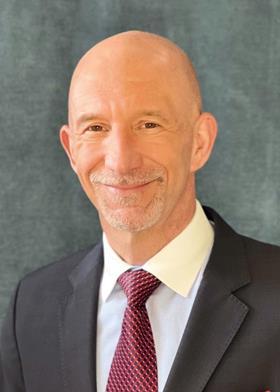Editor’s note: Compliance Week’s National Conference will be in full bloom this spring as our flagship event moves up a month and to a new venue. Held April 2-4 at The Westin Washington in downtown D.C., the event will feature the perspectives of 80-plus compliance, risk, and regulatory professionals across interactive workshops, panel discussions, keynote addresses, and more.
Michael Koenig, global chief ethics and compliance officer at JBS Foods, will speak as part of a fireside chat titled, “Rebuilding the Compliance Department Post-DOJ and SEC Settlements – Lessons Learned from JBS.” Compliance Week sat down with Koenig to preview the session.
Q. During a session at CW’s 2023 National Conference covering corporate culture goals, you advised practitioners to avoid trying to impose their will on a company when they first go in. You said, “[Practitioners] really need to educate and not dictate as a compliance officer.”
Was this advice something you learned personally when you first joined JBS in 2021?
A. Yes, and it was perhaps one of my greatest lessons learned. Any company’s primary goal is to be profitable, and there’s nothing wrong with that. Everyone understands that departments such as legal, compliance, and HR—while able to potentially save money in some aspects—are typically considered cost centers.
So, compliance officers have to educate and inform the C-suite, and really the entirety of the organization, as to what compliance is; why it matters; and ultimately how it will promote, support, and enhance the business’s success, including its profitability.
You have to be able to link compliance to the success of the business, and that can only be accomplished by informing and educating, not mandating. This approach also helps ensure leadership and company ‘buy in’ to the importance of ethics and compliance.

Q. JBS formed a global executive compliance committee in 2022 following your appointment as CECO. It was tasked with building a uniform and consistent compliance program across all JBS entities, along with promoting a culture of compliance company wide. How did the company benefit from this holistic approach?
A. The broad-based approach is helping to bring clarity and consistency to the company’s global compliance program and global compliance aspirations. Because all the JBS entities were under the Department of Justice’s (DOJ) and Securities and Exchange Commission’s (SEC) settlement agreements, it didn’t make sense to develop and implement four separate programs under the terms of the agreements.
Now, to be clear, not every region does everything the exact same way. We have global policies and global leadership that allow for certain regional differences so long as they are consistent with the overall global approach. This has resulted in a program that is far more globally consistent, efficient, and clear so that every JBS or Pilgrim’s employee knows, wherever they are, what’s expected of them and is on the same page. By harmonizing the different regions under one program, it also makes oversight and sharing ideas and best practices much easier.
Q. During last year’s event, you said “perfect can’t be the enemy of the good” in emphasizing the importance of having a fluid compliance program that’s constantly evolving. What can compliance officers do to be more proactive and not rest on their laurels?
A. Compliance officers have to remain vigilant, see around corners, and anticipate potential risks, all the more so when there is no readily apparent ‘imminent threat’ or existing DOJ and/or SEC settlement agreement with which to contend.
This requires constant communications with leadership and business unit leaders to remain aware of issues they encounter. I also think it’s critically important to keep leadership informed, in real time, of the types of issues that regulatory and enforcement agencies have identified as priorities.
Being proactive means addressing issues when they arise. One thing I can promise … problems don’t go away. The advice I give is don’t let a spark become a flame, a flame become a fire, or a fire become an inferno. Deal with situations at their earliest occurrence. Not only can you often contain or resolve whatever it is if detected and addressed early, but it will be a lot less costly to do so.
Being proactive also depends on a company’s stage in its compliance journey. When you’re under a DOJ and SEC settlement, as we were, there’s tremendous leverage within the company … if you don’t satisfy the agreements, you run the risk of being in breach or, worse, getting a monitor. However, once you’ve satisfied the agreements, the urgency of compliance can wane.
Thus, it’s incumbent on a compliance officer to determine how to remain relevant while at the same time not overreaching. It really is important to determine what hills to die on: when it is time to be absolute with leadership; when it is time to find a middle ground; and when it is time to realize that while you might do it differently, it’s ultimately a leadership decision.
Much of our job is to present options, identify the consequences of those options, give the best informed advice we can, and make recommendations.
Q. What are some of the keys to collaborating with the DOJ and SEC during the post-settlement process?
A. I think it’s critically important to realize that once you are under settlement agreements, it is, or certainly should be, a far less adversarial relationship with the government than it is with litigation.
This is not to say the company needs to, or should, roll over or accede to every government claim. However, the level of contentiousness should never approach what often occurs in litigation.
The DOJ and SEC, in recent years in particular, have indicated a desire to work with compliance departments who are under settlement agreements in ways that will help ensure success. While the DOJ and SEC want to see bad actors be punished, they don’t want to see companies fail.
Once the agreements are in place, it’s important to be transparent with the government as to what’s going well, what still needs to be addressed, and your plan for doing so. The key is to truthfully share with the DOJ and/or SEC how you are substantively addressing whatever led to the settlement and share with them how you are building an ‘effective’ compliance program.
Q. What lessons have you learned in hiring compliance staff, including diversifying the department and making the business case to the C-suite for more resources?
A. In developing the necessary staffing, it’s important to hire people with different experiences and different areas of expertise. I think the initial inclination is to hire lawyers, but that’s not necessarily the correct approach. Instead, you need to populate a compliance department with people who have backgrounds in accounting, data analytics, auditing and/or fraud examination, and investigators. It starts with making sure you can educate leadership as to why these different resources are needed.
As for making the case for resources, it goes back to discussing with leaders the business case for why particular positions should be filled. Part of that business case is that by bringing talent in house, it saves potentially three or four or five times the amount of money that would be spent if you had to refer the work to outside firms or experts.
Another way to make the case for sufficient resources is sharing with leadership the publicly available information on government expectations in connection with compliance resources. That information, found in material like DOJ speeches, policy announcements, and guidance, provides an objective data point to make the case for sufficient resources.

Topics
- Anti-Corruption
- Chief Compliance Officer
- Chief Ethics and Compliance Officer
- Compliance Week 2024
- Compliance Week National Conference
- Department of Justice
- DOJ
- Ethics & Culture
- Food & Beverage
- JBS
- JBS Foods
- Michael Koenig
- Regulatory Enforcement
- Risk Management
- SEC
- Securities and Exchange Commission
- South America
- Surveys & Benchmarking
- United States

















No comments yet